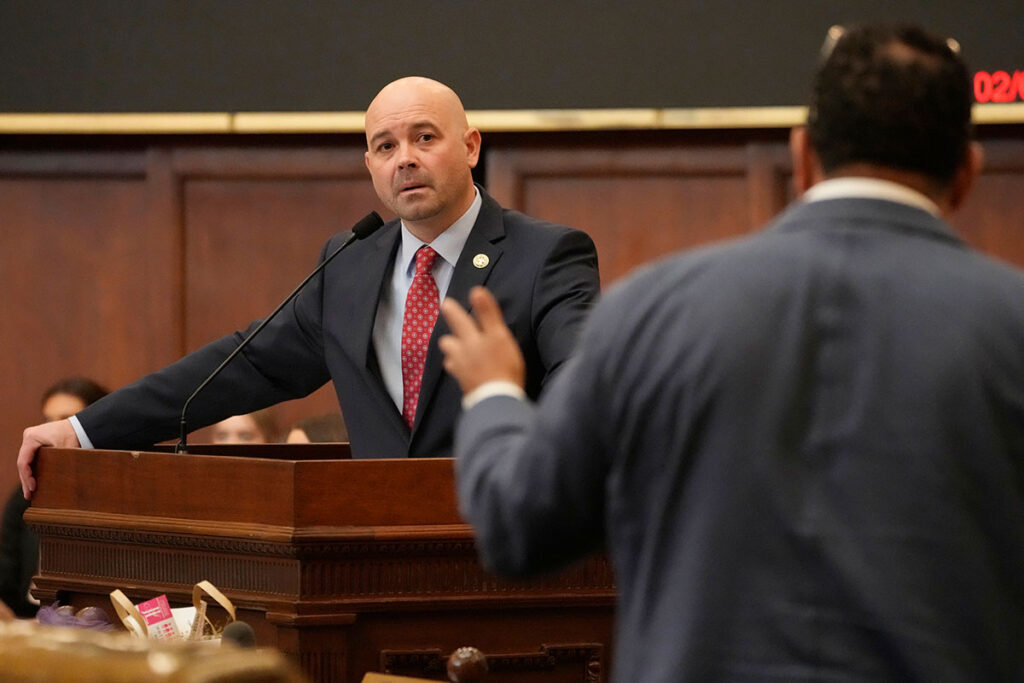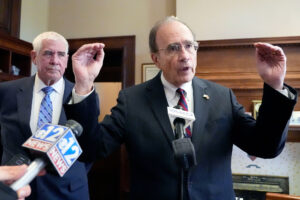As Mississippi continues to lead the nation in rates of maternal, infant and fetal mortality, the Mississippi House approved a bill last week that would grant a pregnant woman presumptive eligibility for Medicaid so that she could go to the doctor while the State finished her determination.
To qualify for presumptive eligibility under House Bill 539, a pregnant woman must go to a federally qualified health center, a county health department, or a Department of Medicaid trained and approved provider to get a pregnancy test—showing proof of income. After a provider approves her for presumptive eligibility, she would be able to visit her obstetrician for a maximum of 60 days while DOM finishes deciding whether to add the woman to the official Medicaid rolls.
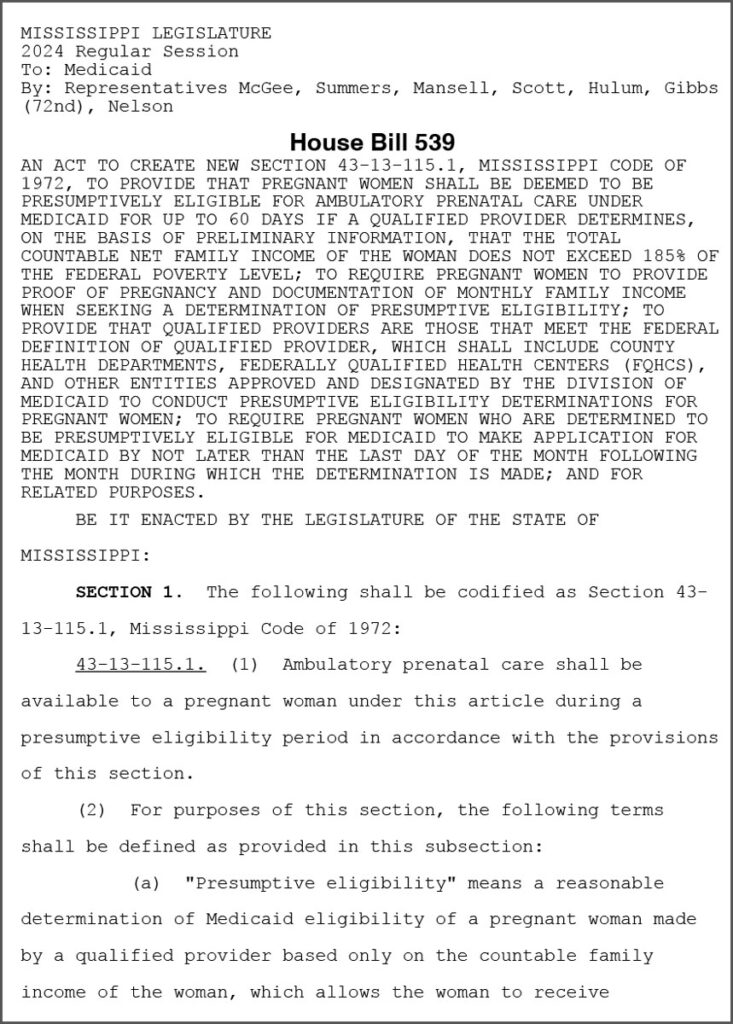
The bill’s author and House Medicaid Committee chairwoman Rep. Missy McGee, R-Hattiesburg, said the program’s cost to the state would be $567,000.
“So the benefits are great. The risks are really small for the state,” she said on the House floor on Jan. 31. “And in a state where we have the highest fetal mortality, infant mortality and maternal mortality, I think this will go a long way in helping moms and babies be healthy and give babies the best shot for a healthy life.”
Mississippi State Health Officer Dr. Daniel Edney said early access to prenatal care is vital for the health of the pregnant woman and her baby.
“Passage of this legislation would be a major step in removing an unnecessary barrier to early prenatal care and lead to more positive outcomes for moms and babies,” he said in a Feb. 2 statement to the Mississippi Free Press. “As we continue working on several other areas to improve outcomes, I am very appreciative of the work being done at the legislature and look forward to assisting in any way we can.”
H.B. 539 had a bipartisan list of sponsors, including Rep. Zakiya Summers, D-Jackson; Rep. Clay Mansell, R-Clinton; Rep. Omeria Scott, D-Laurel; Rep. Jeffrey Hulum, D-Gulfport; Rep. Justis Gibbs, D-Jackson; and Rep. Fabian Nelson, D-Byram. The House passed the bill on Jan. 31, and it now goes to the Senate. If the Senate approves H.B. 539 without making any changes, it will then head to Gov. Tate Reeves’ desk where he can choose whether to sign it into law.
Prior-Authorization Regulation
Insurance companies would be required to change how they handle prior authorizations for patients to obtain uncovered medications or procedures under Senate Bill 2140, which the Senate passed and sent to the House on Jan. 31.
The proposal would require insurance companies to provide a list of medications and other services that require patients to obtain prior authorization and to publish the list online for the public to view along with “prior authorization statistics.”
Under S.B. 2140, A health insurer would have to “periodically review its prior authorization requirements” and may need to remove requirements in “certain cases,” like if a doctor prescribed a medicine or procedure that is the primary or only treatment option available and peer-reviewed studies show evidence of such.
“A health insurance may not revoke or further limit, condition or restrict a previously issued prior authorization while it remains valid under this act unless certain exclusions are applicable,” S.B. 2140 says, mentioning that insurance plans do not have to cover any service or medicine for a health condition that is not included in the “terms of coverage.”
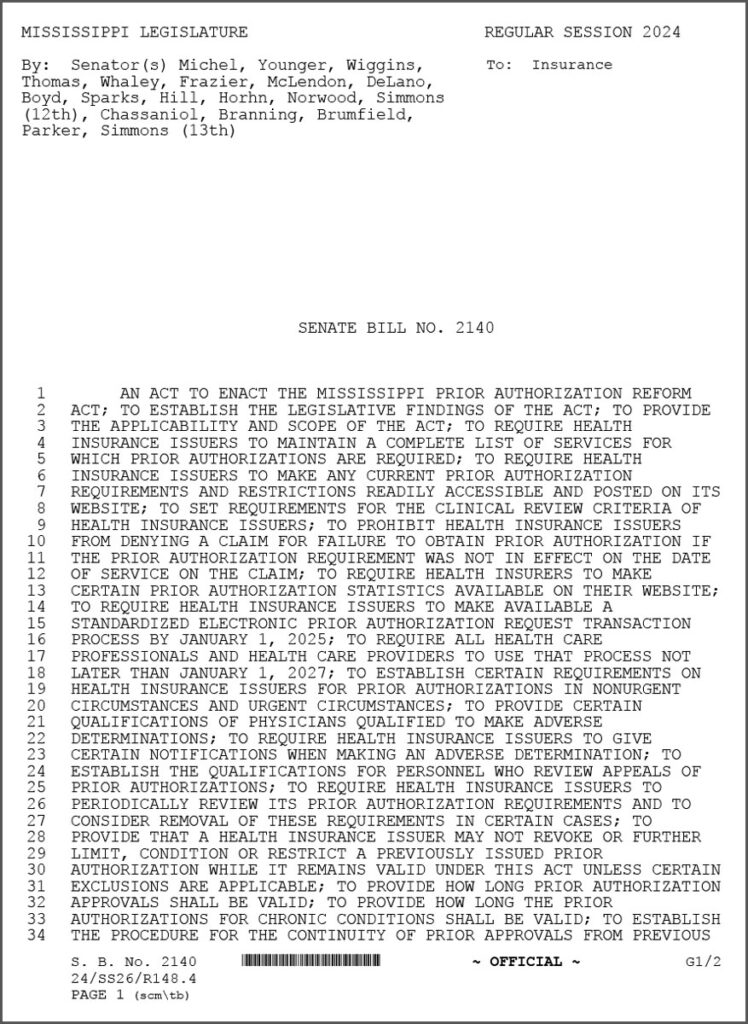
Senate Insurance Committee Chairman Sen. Walter Michel, R-Ridgeland, who authored the bill, said some Mississippi legislators have been attempting to get a prior authorization bill passed since 2022, and the complicated nature of the topic called for extra hearings during the summertime.
He said doctors have called on the Legislature to address prior authorization issues so that insurance companies will have to answer medical providers’ requests in a timely manner.
“And the authorization process, what we’re looking to happen is for the medical procedure to be approved and for the insurance company to say, ‘Yes, that follows in the guidelines of our policy, and we’re going to pay for it.’ That’s pretty simple,” Michel said on the Senate floor on Jan. 31. “The patient wants to make sure they’re going to get the procedure, and the medical doctor, it’s only fair that they get paid for doing the procedure.”
The bill enjoyed bipartisan support, and its cosponsors include Sens. Charles Younger, R-Columbus; Brice Wiggins, R-Pascagoula; Joseph Thomas, D-Yazoo City; Neil Whaley, R-Potts Camp; Hillman Frazier, D-Jackson; Michael McLendon, R-DeSoto; Scott DeLano, R-Gulfport; Nicole Boyd, R-Oxford; Daniel Sparks, R-Belmont; Angela Burks Hill, R-Picayune; John Horhn, D-Jackson; Sollie Norwood, D-Jackson; Derrick Simmons, D- Greenville; Lydia Chassaniol, D-Winona; Jennifer Branning, R-Philadelphia; Gary Brumfield, D-Magnolia; David Parker, R-Olive Branch; and Sarita Simmons, D-Cleveland. The Senate approved the bill on Jan. 31, and it will head to the House for more work.
If the House approves the bill without changes, it will go to Gov. Tate Reeves’ desk where he can decide whether or not to sign it into law.
Online Sports Betting
Online sports betting may soon be legal under House Bill 774, the Mississippi Mobile Sports Wagering Act. The bill would make storefront gambling businesses sign a contract with online gambling platforms that only accept money from bettors in Mississippi who are 21 and older.
Last year, legislators passed and Gov. Tate Reeves signed House Bill 606, which created a committee of lawmakers that researched online sports betting and heard from experts.
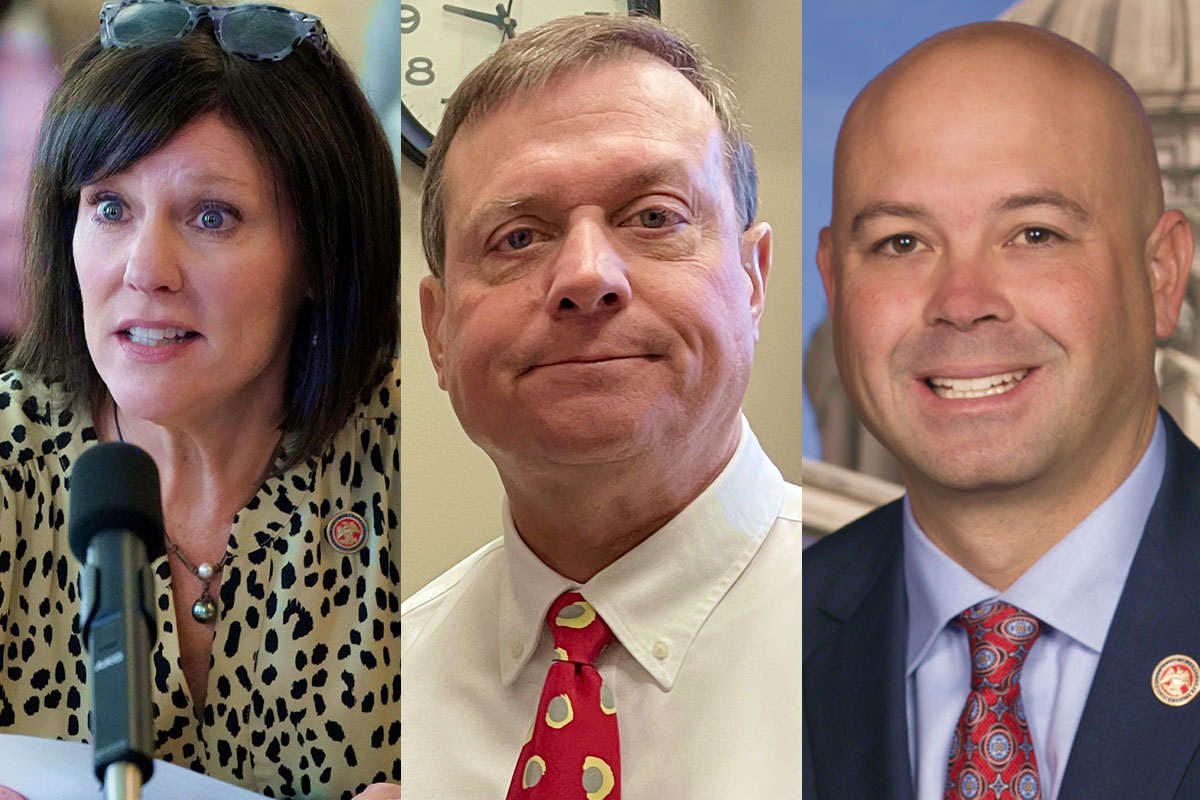
In-person sports betting has been legal since 2018 when the U.S. Supreme Court overturned the 1992 Professional and Amateur Sports Protection Act.
Rep. Casey Eure, R-Saucier, authored the bill and said the Gaming Commission’s calculations show the state could make $25 to $35 million yearly from taxes.
“Mississippi had 9.3 million checks, which means 9.3 million people tried to place illegal sports bets in our state last year,” he said on the House floor on Feb. 1. “Texas had 5 million. So that shows you how many Mississippians are wanting to use a legal site and utilize mobile sports betting.”
The representative said Mississippi is not gaining revenue from illegal gaming sites and that people are taking their money to Tennessee and Louisiana, which have legalized online sports betting.
The bill’s bipartisan slate of cosponsors includes Reps. Zachary Grady, R-D’Iberville; Christopher Bell, D-Jackson; Jeffrey Hulum, R-Gulfport; Jay McKnight, R-Gulfport; Fabian Nelson, D-Byram; Shane Aguirre, R-Tupelo. The House passed an amended version of the bill on Feb. 1. If the Senate approves H.B. 774 with no changes, it will go to Gov. Reeves’ desk.


